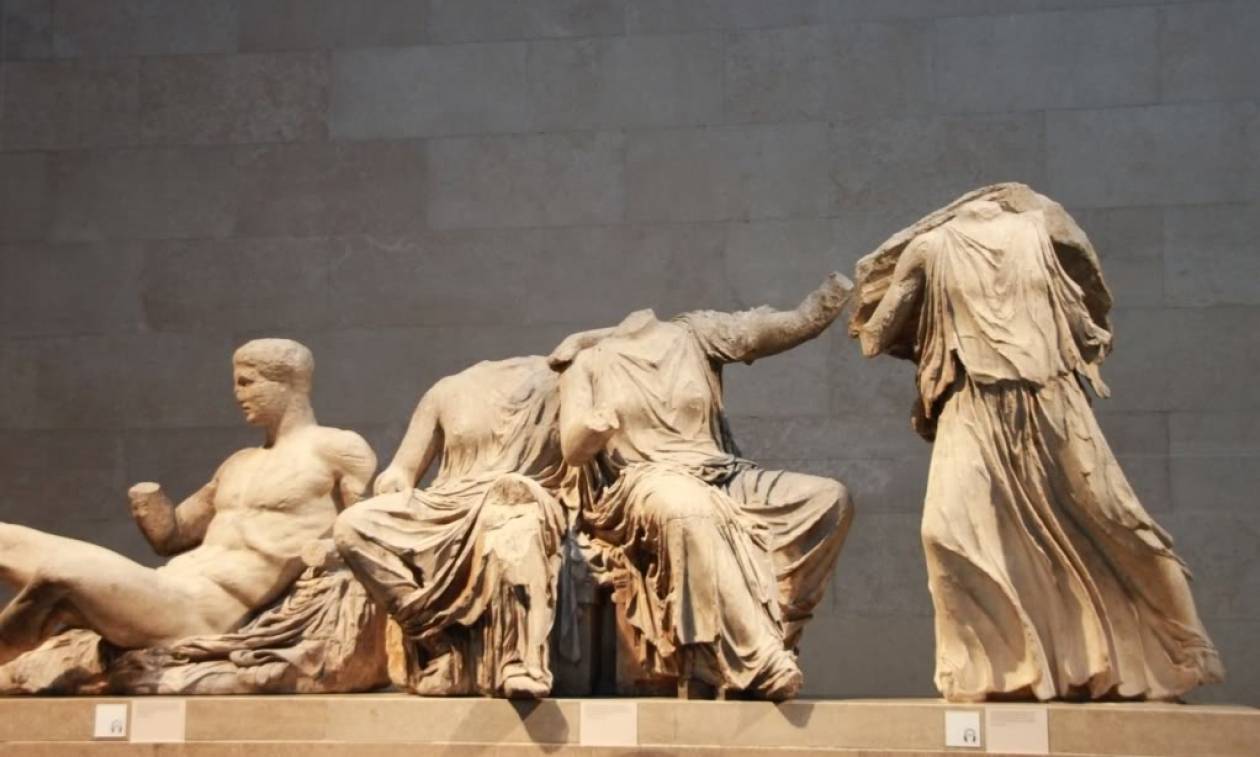
Will Greece give compensation to Britain to achieve the much-desired repatriation of the Parthenon Sculptures? And if so, will it offer the cream of antiquities it exhibits in its museums or will it retrieve hidden treasures from the warehouses? Will it accept the reunification of only part of the sculptural decoration of the leading monument of classical antiquity, or will it claim the works in the British Museum, in their entirety? What is the regime that will apply in the event that Britain overcomes the legal hurdle that prevents it from making the move that Greece is fighting for? Will the UK still retain their ownership?
These questions come back to the news every time a new attempt of approach between the two sides is revealed, and indeed in an extremely detailed manner in the most recent publication of the “Financial Times”, in which it featured a lengthy article of more than 3,000 words detailing the background of the meetings between the Greek Prime Minister Kyriakos Mitsotakis and the president of the British Museum and former British finance minister George Osborne. In this the frescoes of Santorini were mentioned as an example of “exchange”.
These are not new issues that fall on the table. On the contrary. In the recent three-decade-long effort to claim the Sculptures (because there were previous movements already in 1842, 1924 and 1961) many of them have been approached in many different ways, sometimes more flexible, mainly from the Greek side, and sometimes not so much, while both the British and the Greek side have changed their policy, without however achieving convergence so far.
1982: The beginning with Melina
The myth dynamically begins to unfold in 1982, a landmark year, as at the UNESCO General Conference on Cultural Policy in Mexico, the then Minister of Culture, Melina Merkouri, presented the request of the Greek government for the return of the Parthenon Sculptures to Greece, and the Greek delegation submitted a draft recommendation in favor of the return of the Sculptures to Greece, which was voted for. Two years later Greece submitted a formal request for the return of the Sculptures and Britain rejected it. In the same year Greece submitted an official request to UNESCO and in 1987 the issue was included in the official agenda of UNESCO issues and since then it has been discussed every two years at the meetings of the Intergovernmental Committee.
However, all these years there has not been any substantial dialogue between the two sides and Greece mainly moved in international forums without setting individual conditions for an agreement. It attempted to exert pressure mainly through informing public opinion, with the results reflected in opinion polls, and “recruiting” personalities in favor of the Greek demand, “weapons” that were used to a greater extent later on. The lack of the Acropolis Museum was a “brake” – although it was not publicly acknowledged – for Greek claims. 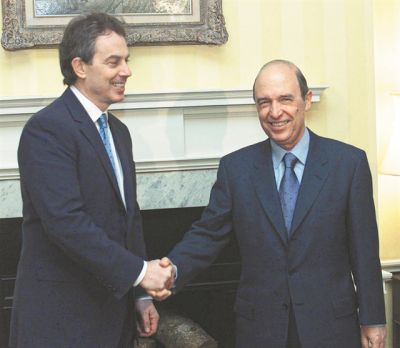
2001: The first prime ministerial debate
It was a landmark year for the issue for two reasons. First, because it was discussed for the first time, without being publicized at the time, at the highest possible level, between Prime Ministers, Kostas Simitis and Tony Blair, on the initiative of the former. And secondly, because an attempt was made to overcome the constant “thorn” in the talks between the two sides, the ownership regime, by the then Minister of Culture Evangelos Venizelos, declaring to the “Guardian” newspaper that the issue of ownership is not important for Greece and that nothing is excluded from the discussions.
A year later, in 2002, Greece still kept the issue high – and in view of the Olympic Games in Athens, which were considered a serious pressure point and a great opportunity for such a highly symbolic move on the part of Britain. And it even went a step further. Evangelos Venizelos met with the then director of the British Museum, Neil MacGregor, who was opposed to any discussion of the return of the Sculptures. The Greek minister, however, stated that Greece is willing to accept a long-term loan in exchange for the British Museum and talked about the possibility of operating a kind of annex of the British Museum at the Acropolis Museum (when it would be inaugurated, which happened seven years later), a solution which, according to the minister, would allow “overcoming all historical and legal stereotypes and find a dynamic cultural solution to the problem of the unification of the Parthenon Sculptures”.
That year, the initiative was openly taken – and not far from the public eye this time – again by the then prime minister, who personally gave a note to his British counterpart with the Greek positions and an exchange of letters followed, without, however, finding the intended “political solution”.
2003: Property disputes
A year before the Olympics, Neil McGregor, in a Sunday edition of the Times – which also consistently ran an anti-Sculptors column – reported that now “the Greek side is not disputing ownership”, with Evangelos Venizelos countering by arguing that it has never stated that it recognizes the British Museum’s legal title to the Parthenon Marbles and that “the Greek government does not raise the legal question of the ownership of the Marbles because it wants to find an amicable and consensual solution that will allow them to be exhibited in a single building of the New Acropolis Museum and in direct visual contact with the monument itself”.
The momentum of the Olympic Games was lost as apart from the rigid attitude of the British, the Acropolis Museum was not ready. The issue, however, did not cease to concern Greek governments. The baton had already passed into the hands of the New Democracy government in 2004, but the policy of the Ministry of Culture continued to support the logic of offering exchanges to achieve the national goal, as the question of reuniting the Sculptures was framed. It is no coincidence that in 2006 the then Minister of Culture Giorgos Voulgarakis had admitted that there was an impasse and that none of the methods of approach that had been tried until then had worked, declaring at the same time that he was determined to take seriously the solution of giving back through periodical exhibitions. Angelos Delivorias, professor and director of the Benaki Museum, who was in charge of negotiations for the return of the Parthenon Sculptures at the time, proposed that some antiquities from the museum warehouses be offered in exchange – permanent loans – to any museum that has fragments of the Parthenon in its collections, would like to offer them to Athens.
2009: The trump card of the Acropolis Museum
2009 was also the year when the Greek pressure towards the British began to become particularly intense, when the Acropolis Museum was inaugurated. Plaster copies in place of the original sculptures in the British Museum after the looting by Elgin began to make the essence of the Greek claim more clear to the public. The British Museum then stated that it could discuss the loan of the Sculptures on the condition that Greece would recognize it as the rightful owner. The Greek side, however, had changed its policy and was not seeking such a solution.
2014: The loan of Ilissos and UNESCO
2014 was also a milestone year. Not only because the British lent the sculpture from the west pediment of the Parthenon depicting the River Ilissos to the Hermitage in St. Petersburg – causing the then Prime Minister Antonis Samaras to “explode” – but also because UNESCO stated its intention to act as a mediator to resolve the issue, but the proposal was rejected by Britain. In the same year, the possibility of a legal claim was firmly put on the table, with the arrival of George Clooney’s wife, Amal Alamuddin, and her fellow lawyers Jeffrey Robertson and Norman Palmer in Athens, who proposed to open a controversial chapter in history of the claim of the Scu;ptures.
2019: Brexit and the bicentennial of the Greek Revolution
The next milestone year was 2019, due to Brexit. The issue was again high on the agenda, with Kyriakos Mitsotakis raising the question of the Sculptures directly to Boris Johnson a few months after taking office, linking the repatriation with the 200th anniversary of the Greek Revolution.
Developments turned out to be faster compared to the past. In 2019, the UNESCO Intergovernmental Committee for the Return of Cultural Property to the Countries of Origin (ICRCP) called on Britain to review its position and recognize the intergovernmental nature of the issue and consequently enter into a dialogue with Greece, and the Greek Prime Minister officially raised the issue of intergovernmental cooperation and dialogue.
2021: Secret contacts and reversal of the “Times”
In 2021, secret contacts between Greece and Britain began (which were later made known by a report of NEA newspaper), with the “Financial Times” revealing aspects of the background of the meetings between Kyriakos Mitsotakis and George Osborne, reporting among other things that one of the issues that must be settled without affecting the two sides is ownership. Meanwhile, the conservative and staunch opponents of Greek positions “The Times” made a 180 degree turn and openly stood with an article in favor of the repatriation of the Sculptures.
The next day should resolve a number of “hot” issues – such as whether all or part of the Sculptures will be returned to Greece, under what ownership conditions, for how long and with what exchanges. Because there may be a small percentage of the deal left open, as has been written, but it is also the most pivotal.
Latest News

New Exposé by Domumento Reveals Nefarious Triangular Link of ‘Black Money’ with New Democracy, Blue Skies, & Truth Team
The latest exposé by the Documentonews.gr news site lays bare what appears to be a surreptitious path of indirect financing of ND through the business sector—transactions that, as widely understood, rarely occur without expectations of reciprocal benefit

PM Meloni Meets Vice President Vance in Rome Signalling Optimism on Ukraine Talks
Meloni emphasized the strength and strategic value of the Italy-U.S. partnership.

Airbnb: Greece’s Short-Term Rentals Dip in March Amid Easter Shift
Data from analytics firm AirDNA shows that average occupancy for short-term rentals dropped to 45% in March, down from 49% the same month last year.

Easter Week in Greece: Holy Friday in Orthodoxy Today
At the Vespers service on Friday evening the image of Christ is removed from the Cross and wrapped in a white cloth

Meloni and Trump Meet in Washington, Vow to Strengthen Western Ties
“I am 100% sure there will be no problems reaching a deal on tariffs with the EU—none whatsoever,” Trump stressed.

ECB Cuts Interest Rates by 25 Basis Points in Expected Move
The ECB’s Governing Council opted to lower the deposit facility rate—the benchmark for signaling monetary policy direction—citing an updated assessment of inflation prospects, the dynamics of underlying inflation, and the strength of monetary policy transmission.

Current Account Deficit Fell by €573.2ml Feb. 2025: BoG
The improvement of Greece’s current account was mainly attributed to a more robust balance of goods and, to a lesser extent, an improved primary income account

Hellenic Food Authority Issues Food Safety Tips for Easter
Food safety tips on how to make sure your lamb has been properly inspected and your eggs stay fresh.

Greek Kiwifruit Exports Smash 200,000-Ton Mark, Setting New Record
According to data by the Association of Greek Fruit, Vegetable and Juice Exporters, Incofruit Hellas, between September 1, 2024, and April 17, 2025, kiwifruit exports increased by 14.2%.

Easter Tourism Boom: Greece Sees 18.3% Surge in Hotel Bookings
Among foreign markets, Israel has emerged as the biggest growth driver, with hotel bookings more than doubling—up 178.5% year-on-year.







![Πλημμύρες: Σημειώθηκαν σε επίπεδα ρεκόρ στην Ευρώπη το 2024 [γράφημα]](https://www.ot.gr/wp-content/uploads/2025/04/FLOOD_HUNGRY-90x90.jpg)





![Airbnb: Πτωτικά κινήθηκε η ζήτηση τον Μάρτιο – Τι δείχνουν τα στοιχεία [γράφημα]](https://www.ot.gr/wp-content/uploads/2024/07/airbnb-gba8e58468_1280-1-90x90.jpg)











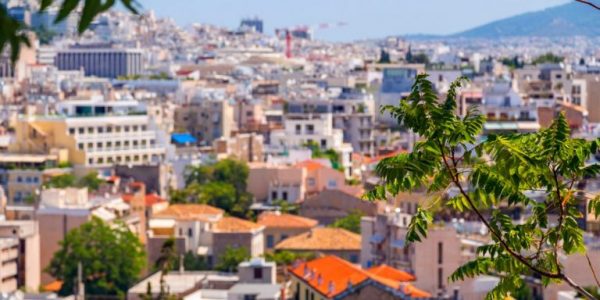




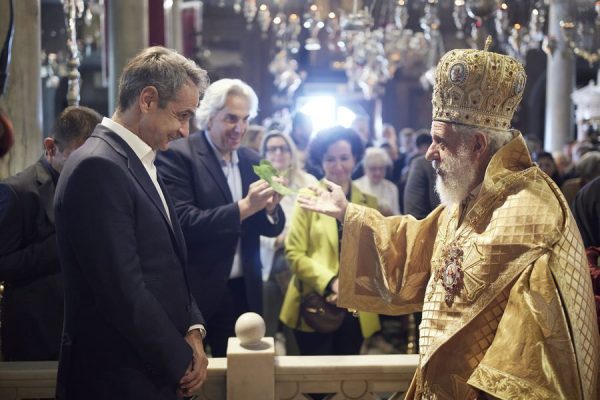
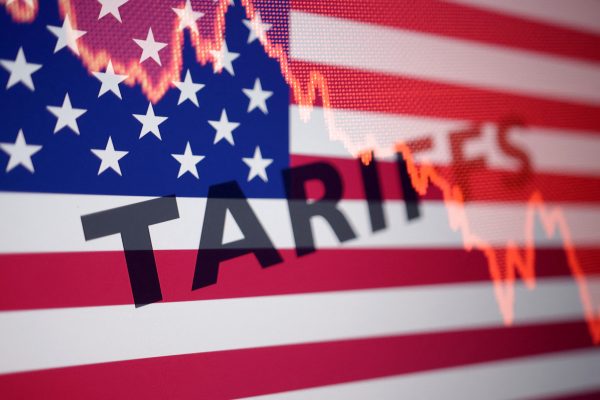






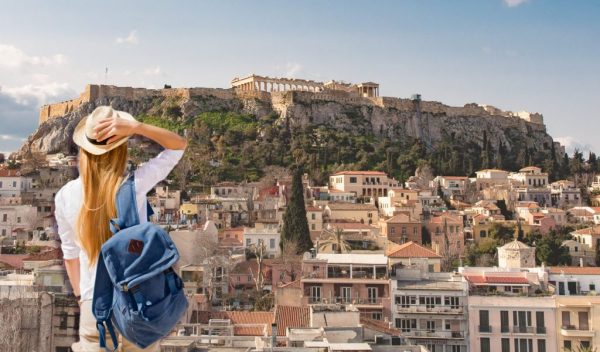


 Αριθμός Πιστοποίησης
Αριθμός Πιστοποίησης